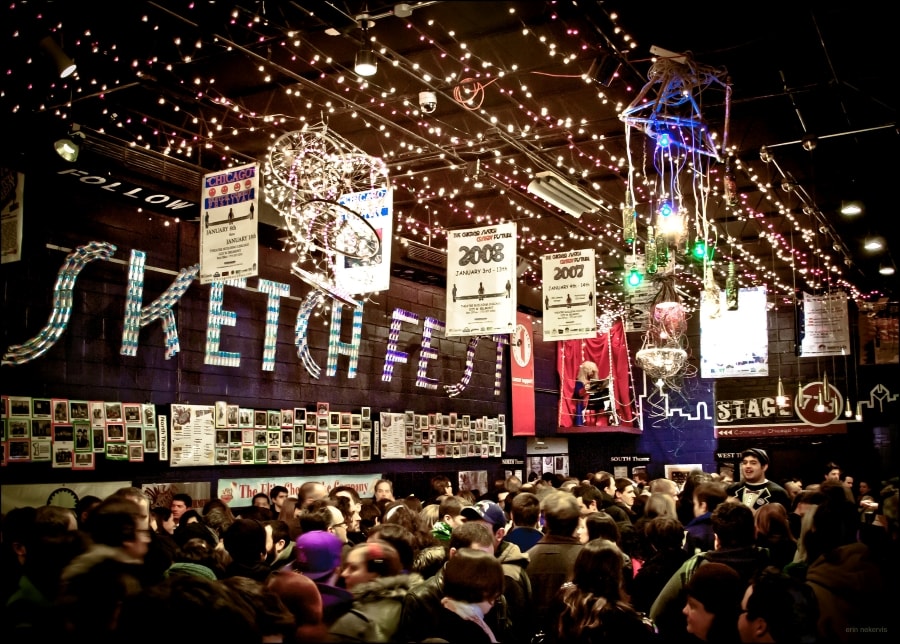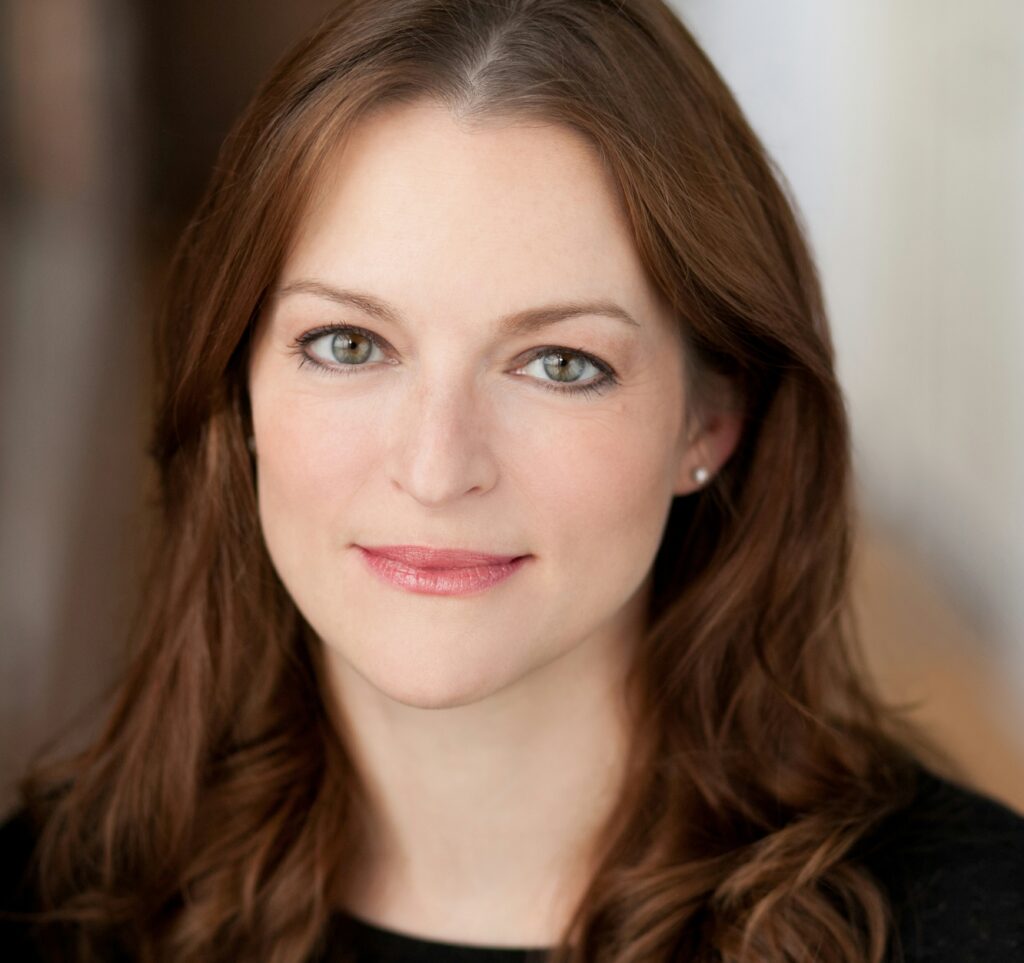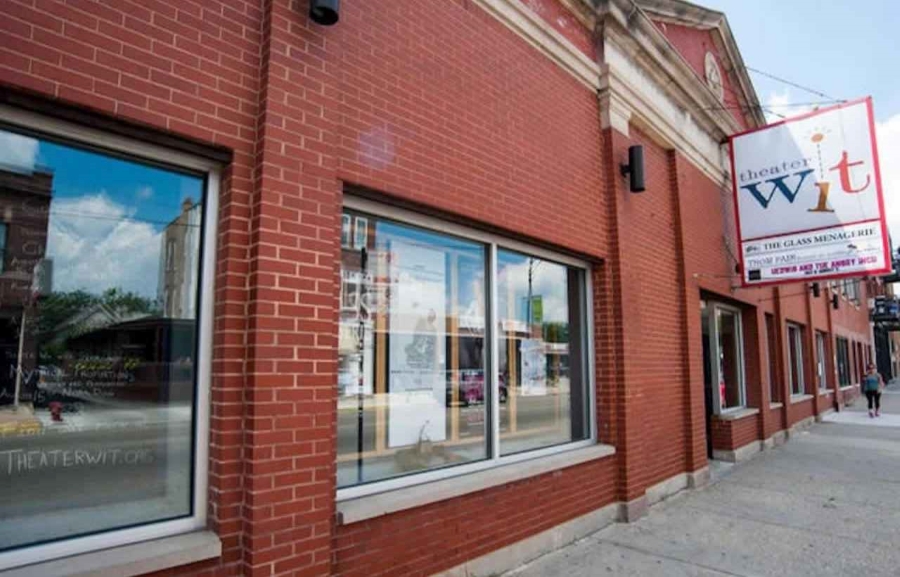Small and midsize performance venues help create Chicago’s patented storefront scene. For years, multi-venue spaces across the city have been home to these intimate productions and the companies that crafted them, providing residencies of a sort for smaller theatres that didn’t have their own spaces to not only make their work but cultivate audiences. When these rental outfits shutter or change direction, as a number of notable Chicago venues have in the last few years, they disrupt this fragile community. Recently, space has become increasingly hard to find for theatre companies in Chicago, making it more difficult for smaller companies to maintain their already tenuous footholds.
That’s what happened to Eclectic Full Contact Theatre when they ended their residency at the Athenaeum, in part due to a new policy at that church-run venue. Eclectic artistic director Andrew Pond explained that, ever since the company left the Athenaeum a few years ago, they’ve struggled to find a new home. Suddenly Eclectic was at the bottom of the priority list in trying to get consistent rental space for their shows because they were suddenly the new kid on the block again.
“It was very hard to find space that had dates available,” Pond said. “We did get offered availability for this past year if we wanted Dec. 18 through Jan. 20 or something like that. I see why that was available. But no, thank you.”
Residencies are not a new phenomenon in the performing arts realm, though they’re more common in dance than in theatre. A residency program generally means a theatre company has a home for a set amount of time with low- or no-cost rentals. They may also get additional resources or learning opportunities through the residency host, depending on the program. Prior to the pandemic, resident companies could be found in multi-stage venues across the city like Stage 773, The Den, Victory Gardens, Greenhouse Theater, the Athenaeum, Theater Wit, and Raven Theatre, to name a few. But now, with the effective closure of Victory Gardens, Stage 773 deciding to completely renovate their building for a new business model that doesn’t include resident companies or itinerant producers, and an organizational overhaul at the Athenaeum, which now requires theatres to get their scripts pre-approved by the church that owns the building, residencies for small and midsize theatre companies in Chicago are quickly becoming an endangered species.

“Even before the pandemic, there were few spaces in Chicago between 99 and 200 seats,” explained Remy Bumppo executive director Margaret McCloskey, whose company has seen many of the dynamic shifts in Chicago residencies firsthand. “In just the last three years, several have closed or changed—the Greenhouse Theater Center, where Remy Bumppo performed for over 20 years, used to have two spaces that maxed out at 185 or so, and now they have only one. The Theater Building/Stage 773 used to have a 150-ish-seat space, but now it doesn’t rent to producers like us. Theater Wit, where we currently perform, has three spaces that max out at 99. Our hope is to outgrow that eventually—but where will we go? There is a dearth of midsize spaces, and the ones we do have are struggling.”
In 2021, Stage 773’s shift removed three 148-seat venues from the Chicago scene in total. Victory Gardens has spaces with audience seating for 259 in the main space and 109 in the upstairs studio, but the venue is effectively out of commission while its board mulls next steps. Meanwhile, the massive Athenaeum building has two studio spaces with just over 80 seats alongside its 950-seat mainstage, which once housed shows like Nick Kroll and John Mulaney’s Oh, Hello when it toured through Chicago prior to its Broadway run.
“We are all fighting for the same spaces, which allows the spaces available for rent to up their prices, digging deeper into our costs,” explained Wendy Mateo and Lorena Diaz, co-artistic directors of Teatro Vista.
For a company like Eclectic, Pond said, ever-rising rental costs can eat the majority of a show’s budget. Without affordable spaces around the city, companies aren’t going to be able to survive. That reality won’t just harm the theatres themselves but Chicago’s art scene as a whole.

“Simply put, without affordable rental spaces, Chicago’s theatre reputation will diminish, and thousands of artists will lose opportunities to create,” said Gwendolyn Whiteside, executive artistic director of American Blues Theater. “Chicago’s robust theatre scene is made up of small, storefront, midsize, and large companies. The majority of the rentals are done by smaller theatres. Losing rental venues decimates the ability for all artists, including emerging, fringe, under-resourced, and under-represented makers, to produce their work in Chicago. No access, no art.”
Founded in 1985, ABT has been a resident in several spaces through the years. They were a short-term resident of Victory Gardens from 2009 to 2013, Greenhouse Theater from 2013 to 2016, and Stage 773 from 2017 to 2020. From 2021 to 2022, the company used four venues to mount five productions. Whiteside said ABT is now working on converting a space they purchased in 2022 into a permanent home.
Mateo and Diaz agree that the fight for limited spaces is harming the artists and theatre companies financially. But more than that, the loss of residencies is also costing the community something even greater: meaningful artistic exchange, mentorship, and community building. Residencies give theatre companies access to a network of artists who can support one another and offer advice or leadership when necessary.

“We learned the bulk of our producing chops from leaders that have housed our work,” said Mateo and Diaz, whose company has produced shows out of Victory Gardens and multi-venue space The Den in past seasons. “If no one is growing the business mind of our local artists, then we are doomed to triple our learning curve, killing precious and limited funding dollars in the process. Of course, the saddest reality is that we lose the community between artists, because so many of us crossed paths and forged relationships under the roofs of these theatre residences.”
That’s where companies like Theater Wit hope to come in. Artistic director Jeremy Wechsler’s original idea for a residency program started in 2008. In addition to operating the building, Theater Wit is also a theatre company itself. So Theater Wit’s own producing company occupies space alongside some of the building’s residents during the production season. Altogether there are three theatres inside Theater Wit’s building, which all seat 99 audience members. Its two current residents are Remy Bumppo and Shattered Globe Theatre.
Wechsler explained that providing affordable space at a place like Theater Wit for a few resident companies allows those companies to focus on what they do best without hemorrhaging money to rental fees. Though Wechsler wouldn’t get into the specifics of Theater Wit’s agreements with Remy Bumppo and Shattered Globe, he noted that working alongside a resident host at low or no cost allows small companies to focus on building an audience and creating the work, rather than hustling to find a home and make rent. If young theatres jump around to a different space for every show, they risk losing the connection with audiences that a long-term home can foster.
That said, Wechsler also explained that, in many ways, residency models aren’t financially sustainable for a lot of organizations, largely because granters or funders will view a company like Theater Wit the same as any other theatre company. Even though Theater Wit spends roughly $100,000 per production for themselves and their residents, Theater Wit receives similar grant amounts to those renting and resident companies. The Den, for instance, which touts five performance spaces ranging from 45 seats to its 302-seat Heath Mainstage, has recently been helping to pay for its hosting of resident companies (About Face Theatre, the Artistic Home, First Floor Theater, Haven Chicago) with robust stand-up comedy offerings.
With fewer spaces left in Chicago offering residency programs, small companies could continue to close. High rental costs and lagging audiences have put Chicago’s storefront scene on already unstable ground. Residencies have long been a valuable part of the scene, and will be crucial to Chicago theatre’s return to vibrancy. The loss of some of prominent venues for storefront theatres could reverberate for years to come. Still, hope remains that owners and operators see the benefits to keeping these multi-venue buildings alive and available for Chicago’s passionate storefront community.
“At the end of the day, the best theatre owners benefit from residencies within their spaces,” Diaz and Mateo explained. “[Owners] like Lela [Dyrkacz] at the Chopin Theatre make it their mission to try and give the theatre companies in residence what they ask for, and in return, we meet folks like Lela at their needs. It is an intimate artistic investment that could level up small companies like ours and cement a reputation of groundbreaking and relevant work that emerges from that theatre.
“Audiences may not know every play, production, or artist that comes through Chopin’s doors,” Mateo continued. “But they know when they decide to go to Chopin, the work will be provocative and unique. When Teatro Vista chose the Chopin Theatre to produce The Dream King, Lela became an extended arm of our endeavors toward a successful run and offered us residency considerations. You see, then, how this kind of relationship between a theatre and a resident theatre company could be fruitful when combining powers, knowledge, and experience in this way. And that organic collaboration generates dollars like you wouldn’t believe in a city like Chicago,” which as she put it, is “known for its vibrant theatre landscape, housed in a small-town vibe.”
Amanda Finn (she/her) is a queer freelance journalist based in Chicago. Her work has been featured in publications such as the Chicago Reader, Yahoo, HuffPo, ViaTravelers, and more. She was also one of the three locals who contributed to the book Chicago Like a Local with DK Eyewitness.





